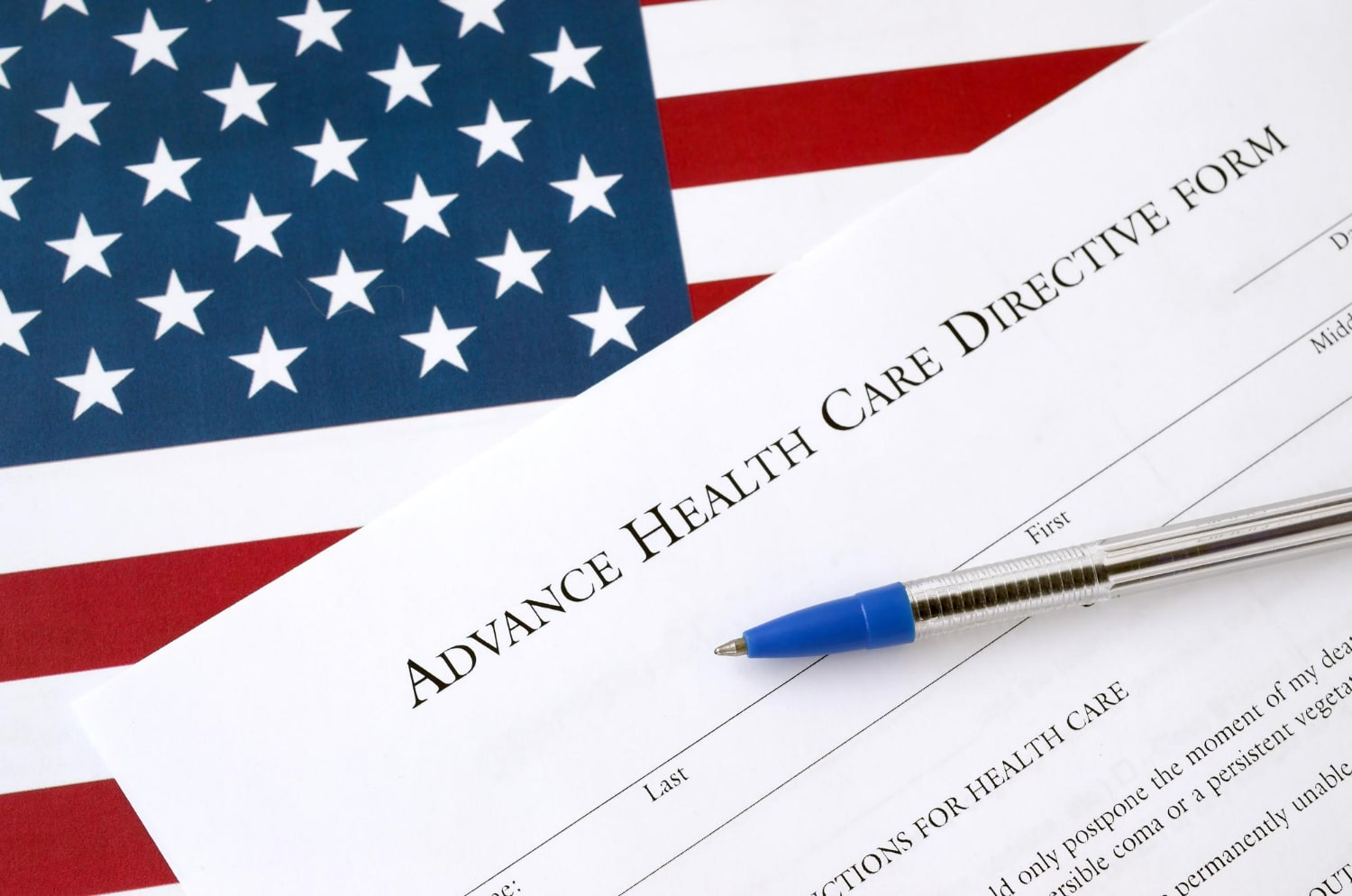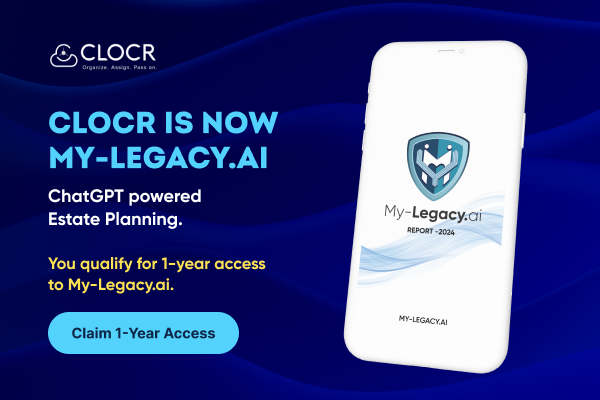Usually, your doctor discusses healthcare options with you and chooses whatever is best for you. But what if you’re too ill to make your own decisions? What if the only means of survival is to avail of life support equipment? Whom would you trust to decide on your behalf? Is this person rational enough to value your wishes and objections?
Your future treatment can be improved, and your family’s stress reduced by including your end-of-life preferences in an Advance Healthcare Directive. When you are terminally sick and unable to make these decisions for yourself, an advance medical directive serves as a legal document that specifies your choices for medical treatment.
A medical directive can define emergency care for your treatment and is used to guide your loved ones when they need to make medical decisions on your behalf. You can think about the type of medical treatment you desire in advance by preparing an advance health directive. This article helps you understand everything about Advance Care Planning.
What Is Advance Care Planning?
Young or old age hardly matters regarding one’s medical conditions. Advance care planning helps you list your medical preferences beforehand. Sometimes choices are made concerning the use of life-saving emergency procedures. Advance healthcare instructs about future decisions on one’s healthcare preferences in such situations and then communicates those preferences to family members and health professionals.
You can express your values and preferences on end-of-life care with advance directives for medical decisions. You can Consider it as a living record that you can modify if your circumstances change due to new information or a change in your health. Besides, by making plans in advance, you can receive the medical treatment you wish and aid to avoid disagreements regarding the decisions you would want others to make on your behalf.
However, You must discuss this with your healthcare physician, close family members, and at least one potential proxy or agent before you get started with an advance directive. It will help your family members assist in carrying out your wishes if you are unable to do so, so let them know about your condition, desire, and concerns. So, what should be included in an advance directive? How do you get started with advance healthcare directives?
How to get started with advance healthcare directive?
In a life-or-death situation, decisions are made about emergency treatments to keep you alive. Consider the type of emergency medical care you want and do not want before anything else. Even if you don’t currently have any medical conditions, discuss your family’s medical history with your doctor. It will help you plan for the future. However, consider a few emergency scenarios when making your health care directive.
Emergency healthcare situations to consider
Discuss advance care planning decisions with your doctor and your family. It will also help you understand the gravity of your decision. There are several medical conditions to consider. For example, using a ventilator in an emergency, using artificial hydration, and feeding when nearing death. If you are incapable of eating, a feeding tube provides you with food.
Doctors are not necessarily obligated to follow your advance medical directive. They may decide not to abide by a request if it conflicts with the rule of their practices or their moral convictions. Nevertheless, the doctor will usually abide by your medical directive and fulfill your wishes.
Types of advance care directives?
So what are the three types of advance care directives widely used? Some medical directives are designed by lawyers and some even by the patients themselves, while others adhere to forms specified in state regulations. Whether these documents are valid is decided by state laws and courts. These include living wills, Power of Attorney, PLOST, and many others. Here are three widely used Advance care directive examples.
Living Will
A living will is a document that takes effect if you are terminally ill or permanently unconscious and unable to make decisions about emergency care. It spells out Any person’s wishes for medical care in these circumstances in their living will. It can specify the situations under which one may initiate or stop a life-extension effort for you. A living will is also called an Advance Healthcare Directive, Personal Directive, Personal Wish Statement, or Medical Directive.
Durable POA (Power of Attorney)
A medical power of attorney, otherwise called a durable power of attorney for advance healthcare, legally appoints someone as your proxy to handle all of your medical choices if you are incapable of doing so yourself.
If you give someone power of attorney (POA) but not a durable POA, they are entitled to make decisions on your behalf until you are incapacitated. It is also known as Medical Power of Attorney, Healthcare Power of Attorney, and Healthcare Agent.
Physician Orders for Life-Sustaining Treatment (POLST)
You and your doctor work together to draft your Physician Orders for Life-Sustaining Treatment (POLST) form in addition to your advance directives. If it becomes apparent that you are reaching the end of your life, this form will act as a medical order outlining the treatments you do or do not want.
Qualified medical personnel, such as your doctor, must sign the POLST form. Your state may have a specific version of POLST and MOST form. But your POLST is often respected in other states as well. It is also known as MOST, POST, COLST.
Advance care planning decision

Without prior discussion, it is almost impossible to understand a dying person’s true wishes. Making decisions about your future medical care in advance by creating a medical directive can provide your primary caregiver, family, and other loved ones peace of mind. It makes clear to everyone what is important to you.
What gives you a sense of meaning in life? Would you consent to life-saving procedures if it meant that, in the future, you would be sufficiently well to spend time with your family? Would you be happy if the only thing you could do was lie down and stare out of the window? Think carefully about your advance care planning decisions.
What is an Advance Directive Healthcare Proxy?
A Health Care Proxy is a legal tool that enables you to delegate authority over your medical decisions to another dependable person (a Proxy) if you are no longer able to do it on your own. For example, if you go into a coma, diagnosed with Alzheimer’s.
Your Health Care Proxy acts on your behalf under end-of-life circumstances to make all subsequent medical decisions for you, including whether to have surgery, what medications to take, whether to be taken off a ventilator, and many more. They help you with your advance healthcare decisions.
How to choose your healthcare proxy?
Consider people you know who understand your values and principles while making decisions about your life and health when you wish to choose a healthcare proxy. It may be a family member, friend, lawyer, or member of your medical caregiver who could serve as your proxy. If you don’t name someone as a proxy, it is crucial to have a clear living will.
You should consider certain things when choosing someone as your proxy. Such as, they are familiar with your health status, symptoms, and perhaps medical background. It must be someone committed to taking your health care directive seriously. Once you’ve decided on someone as your healthcare proxy, you should inform them of your choice.
It is up to you how much authority you wish to give to your proxy for your future healthcare decisions. You can decide if they can only make some specific decisions on your behalf or if they are entitled to do more. Moreover, the person serving as your healthcare proxy should be comfortable advocating serious end-of-life healthcare decisions on your behalf. You should convey everything fully well in your medical directive.
Conclusion
Lastly, The future of our medical emergencies is uncertain. You may experience a medical circumstance when you can’t express your wishes and speak for yourself. However, having an advance medical directive for such situations in the future will provide you peace of mind and give your loved ones clarity of your wishes. You can utilize a living will, durable medical POA, POLST, or a combination as a medical directive.
It’s important to discuss your advance healthcare wishes with family members and legal, health, or other appropriate professionals before preparing an Advance Healthcare Directive. Discuss the details of your desire with everyone who might be involved in your care. In times of agony, your loved ones may confuse their wishes with yours.
We at Clocr provide you with services like Social Media Will, Digital Estate, emergency Card, and many more. Unexpected emergencies can occur anytime, and when you cannot speak for yourself, Clocr’s Emergency Card can assist in saving your precious life. It is the quickest and easiest way for someone to contact your family members or doctor who can respond to your agony. Our services, such as Digital Vault and Digital Estate, will help you to protect your digital assets and let your wishes known to your next kin. Join Clocr today to leave behind an unforgettable digital legacy.




